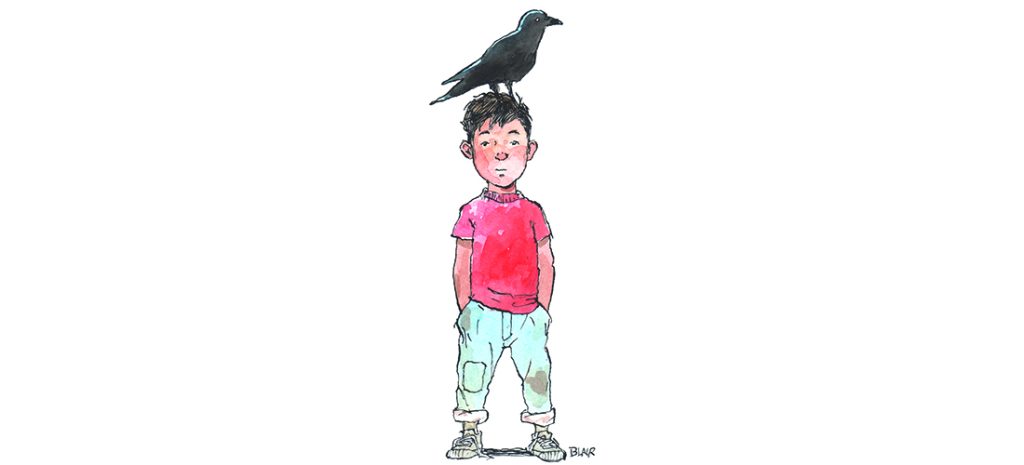O.Henry Ending

A Religion of Birds
On a wing and a prayer, a mother attempts to explain life’s greatest mystery
By Sarah Ross Thompson
It’s the first day of preschool. I am making a last-minute sign for my 3-year-old, Owen, to hold while I take his picture on our front steps. You know the ones, complete with name, age and class (Bees). Lastly, I ask him, “Hey, O, what do you want to be when you grow up?”
Without a moment’s hesitation, he replies, “Well, when I die, I want to be a bird.”
Caught somewhere between laughing and crying, I say, “That’s such a nice idea.” And then, because there is still the sign to think about, “You like firefighters a lot, too.”
“Yeah, firefighters, Mommy!” he agrees.
His words, of course, stay with me the rest of the day. After some thought, I realize that the idea must have come from a trip to the Bog Garden months before. He and I had walked hand-in-hand on the trail while his infant sister rode along strapped to my chest in the front-carrier. We fed the ducks, called for owls, noticed the chickadees hopping on their tiny feet, and, toward the end of our walk, came upon a crow that had died. To my surprise, Owen became tremendously emotional, refusing to leave the bird’s side. And because it’s almost impossible to carry a crying 3-year-old down a steep, muddy trail with one baby already strapped to your chest (If you’ve been there, you know), I had no choice but to stay — and breathe — and discuss the afterlife of the crow.
While I believe in God, I am not a churchgoer. I look for God in nature, love and moments of stillness. Moments such as sitting on a muddy trail, holding my babies and trying to make sense of loss in such a beautiful world.
I don’t pretend to actually know what happens to crows after they die. And yet, I can’t bring myself to leave him with that helpless feeling of uncertainty. So instead, I share with Owen bits and pieces of what I hope happens. “We are only seeing this bird’s body. Its soul is in the air all around us,” I say. “You have a soul, I have a soul, and this bird has a soul, and souls live forever. This bird’s soul may even come back as another bird one day.”
He seems to take this in and process it, asking through sniffles and staggered breath, “What kind of bird, Mommy?” I feel almost paralyzed with the awareness and responsibility of how much weight my words carry for him. It’s not until six months later on the first day of preschool that I discover his words carry the same power for me.
Since then we’ve talked a lot about birds. We’ve got bird feeders, birdhouses, birdbaths, you name it. There is absolutely nothing better or easier than going to feed ducks, geese or swans with my now 5- and 2-year-olds. We do it so often that it’s become our own little religion.
Certain things about birds I hold sacred: Red birds remind me of my Mema, yellow birds remind me of my Grandma and, when I see these birds in our yard, I believe they are my grandmothers coming to check in on us. Or maybe to remind me to be still, to look up, to breathe.
And I agree with Owen: When I grow up (and eventually die) I want to be a bird.
It reminds me of that iconic line from The Notebook, “If you’re a bird, I’m a bird.”
But seriously, please God, let me be a bird. I want nothing more than to navigate eternity with my children’s wings flapping by my side. OH
Sarah Ross Thompson lives in Greensboro with her husband, John, and her children, Owen and Ellie. A psychologist by training, she finds getting lost in the woods and writing little stories to be two of the greatest therapies.
